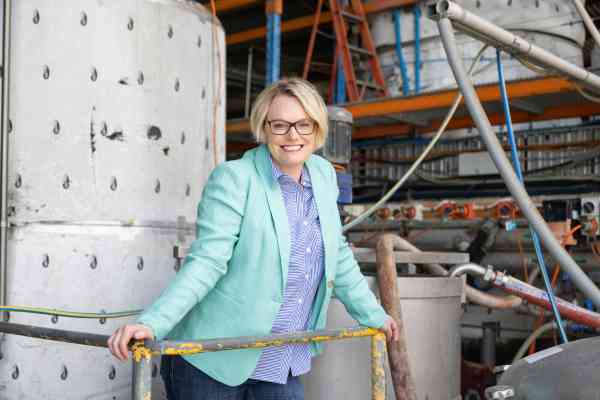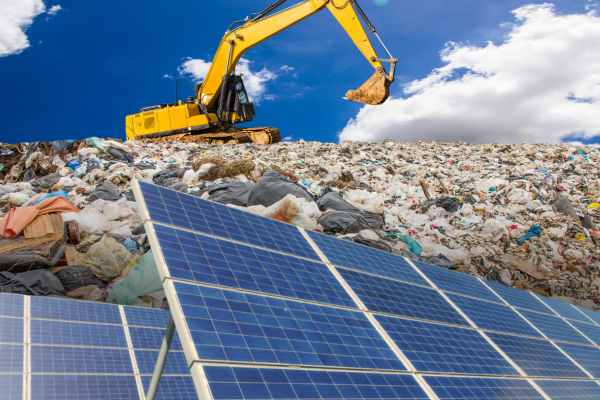Cauldron joins global pioneer ranks
The startup has been recognised by the World Economic Forum for its role in advancing the world’s bioeconomy.

NSW startup Cauldron has been named a 2025 Technology Pioneer by the World Economic Forum (WEF).
The selection places the biomanufacturing startup among a prestigious group of 100 early-stage innovators from across the globe.
WEF Technology Pioneers are selected for their potential to shape the future. Now in its 25th year, the Technology Pioneers program celebrates companies at the forefront of science and technology in fast-evolving industries.
Headquartered in Orange NSW, Cauldron is the only Australian company to make this year’s list. Founded just three years ago by precision fermentation scientist Michele Stansfield, the company's mission is to build the foundations of a new industrial era, one driven not by fossil fuels but by biology.
Precision fermentation reprograms microorganisms such as yeast, algae or bacteria to produce targeted ingredients like proteins, fats or fibres. Cauldron earned its spot on the WEF program thanks to its work on continuous fermentation, a proprietary process that aims to make bio-manufactured products cost-competitive with their conventional counterparts.
“This recognition puts Cauldron alongside a powerful global community of innovators shaping the future”
At its core, Cauldron develops advanced fermentation systems for industries spanning food, materials and chemicals, with the goal of replacing fossil fuel-derived inputs with affordable, sustainable, biologically derived materials.
“We’re pioneering a new era of bioindustrial manufacturing, making it smarter, faster, and more efficient,” Cauldron said. “This recognition puts Cauldron alongside a powerful global community of innovators shaping the future.”
As part of the Technology Pioneers cohort, Cauldron will now have a seat at the table with global business and policy leaders through the WEF’s Innovator Communities network with a view to building connections and exploring collaborations.
“There has never been a more exciting time to dive headfirst into tech innovation,” said WEF's head of innovator communities Verena Kuhn. “But no one gets far alone – you need a community to move your mission forward.”
Planet protection
Cauldron will also take part in the WEF’s Bioeconomy Initiative, which brings together businesses applying biotech to climate change, resource scarcity and emissions challenges.
“We’re looking forward to engaging with public and private sector leaders, finding avenues for collaboration, and contributing to the Forum's Bioeconomy Initiative to advance bio-solutions that can meet some of the world’s greatest challenges,” Cauldron said.
Australian companies that have previously been named WEF Technology Pioneers include Reejig (workforce intelligence), Okra Solar (last-mile energy), and Civic Ledger (blockchain-based natural asset trading). They join the ranks of global alumni such as Google, PayPal, Dropbox, and SoundCloud.
With the CSIRO estimating the global synthetic biology market could reach $700 billion by 2040, Cauldron is rapidly scaling its platform to seize the moment. Over the past 18 months, the company has secured a federal government grant, raised venture capital, and completed the first phase of expansion at its demonstration facility in Orange.
Cauldron’s client list already includes a number of local trail-blazers including Loam Bio (soil carbon capture), ULUU (bioplastics), Eden Brew (animal-free milk), and Nourish Ingredients (animal-free fat).
The company says it now aims to continue scaling its operations to help more bio-based businesses reach commercial scale faster.
Traditional fermentation has long been used to make products like beer or yoghurt. A newer technique called precision fermentation reprograms microorganisms such as yeast, algae or bacteria to produce targeted ingredients like proteins, fats or fibres. These microbes are engineered using advanced nucleic acid techniques to convert simple feedstocks into high-value outputs. Cauldron’s fermentation technology is a proprietary precision fermentation system that it says dramatically boosts productivity, enabling higher volumes at lower cost using smaller bioreactors. It says its platform has been designed to scale this process, making it possible to create everything from animal-free milk and plant-based meats to plastic alternatives at industrial scale.





